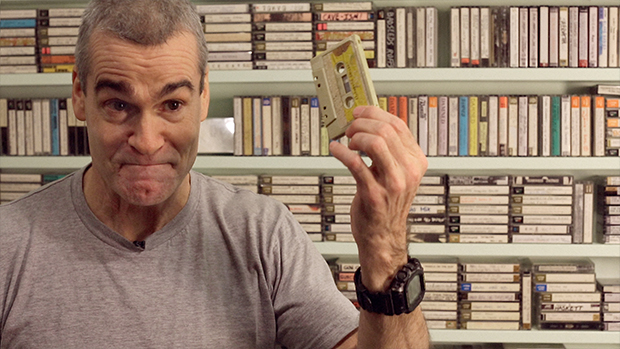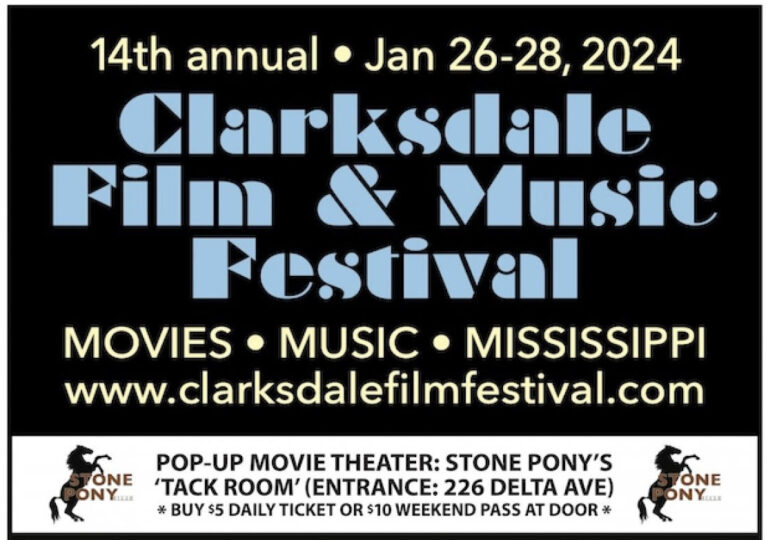
 Cassette: A Documentary Mixtape looks at the history of the analogue format from its early days of release all the way to today where the format has seen a resurgence for its hands-on, DIY nature. The documentary was made by Zack Taylor over the course of six years.
Cassette: A Documentary Mixtape looks at the history of the analogue format from its early days of release all the way to today where the format has seen a resurgence for its hands-on, DIY nature. The documentary was made by Zack Taylor over the course of six years.
“It was 2011 and I was just scrolling through Facebook when I read that the Oxford-English Dictionary was going to remove the term cassette tape from its print edition,” said Taylor. “I was so sad. I thought that someone ought to say a few words, prepare a eulogy.”
Having been born in the ‘80s, mixtapes were a substantial part of Taylor’s youth. In 2011, however, cassette tapes were long gone from his everyday life and existed only as a distant memory of his childhood.
“They hadn’t had their moment in the sun,” said Taylor. “Cassettes were always the underdog and that is why I was drawn to them as a topic.”
Drenched in nostalgia over the then-forgotten format, Taylor set his mind on documenting the life of the cassette tape.
“Cassette was well in my rear-view mirror when I started this project,” said Taylor. “That’s probably why those headlines hit me the way they did. I felt like the negligent family member who just heard his grandma had died.”
As someone who had not spent their life in the cassette tape community, he had no intimate knowledge or connections with the culture surrounding it. Through the process of making the documentary, Taylor again found his love for tapes and not only understood the fandom surrounding them but also became part of it.
“Finding all this stuff for the purpose of putting it in my documentary, I have fallen head over heels back in love with this medium. It’s intensely personal and you’ll find things on a cassette that you’ll never find anywhere else. Once you realize how unique and personal cassettes are, you’re willing to see pass the lo-fi quality of it.”
Taylor was fresh out of film school and wanted to put his education to use on a project that he felt personally connected to. The only issue was that to get the ball rolling his only option to cold call everyone he could think of that is involved in the cassette tape industry.

“I didn’t have any kind of foothold in the tape scene, I didn’t even know there was a tape scene when I started this project,” said Taylor. “As a first time filmmaker I don’t have an extensive catalogue or even sample of what I’ve done in the past. I found the people who called me back and gave me time for an interview were all just people who felt passionate about cassettes. It was all very organic, almost like how a bootleg or a mixtape would have spread back in the day from one person to another.”
Taylor’s first step was reaching out to London tape labels who were still pushing the medium. From there it was a cascade of contacts and recommendations.
“That’s part of the beauty of cassettes,” said Taylor. “Those who are still engaged in the listening, making, and trading of cassettes, they’re very generous with not only their time but also their connections. It’s such a niche thing that there is a strong sense of comradery.”
The two most noteworthy being Henry Rollins and the inventor of the cassette tape, Lou Ottens.
“Early on in the project I emailed Henry Rollins through his website and he messaged me back right away,” said Taylor. “I went out to LA to interview him. He probably gave me the best, most energetic and sincere interview of the whole project. It was a three hour interview and he was full of suggestions about if I talked to this guy or that guy he might give a different perspective.”
Ottens had a less energetic, nostalgic attitude towards his creation.

“When I went to Visit Lou for the first time and realized that interviewing him about the cassette was going to be an uphill battle I was crestfallen,” said Taylor. “It’s like meeting a hero only to find out he didn’t want to talk. He didn’t want the credit, but what I found in the editing room was that his unwillingness to talk about tapes was a beautiful contrast to every interview I had.”
By the end of the project, Taylor realized that the entire process was very much like the mixtapes he, his friends, and the rest of the world had spent their childhoods making.
“It was a word of mouth thing from the beginning,” said Taylor. “It’s very much like making a mixtape. I didn’t go into it with a huge budget or any budget. I just had the passion, the drive, and the time. That’s all you need if you want to make a good mixtape. You need to have the time.”
Cassette: A Documentary Mixtape will screen Saturday 8 pm at Malco Screen 3 and again on Sunday 10:15 am at Malco Screen 2. ![]()


